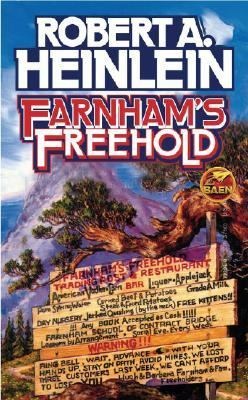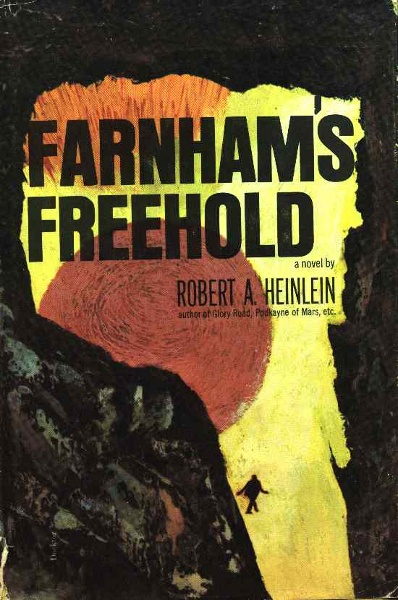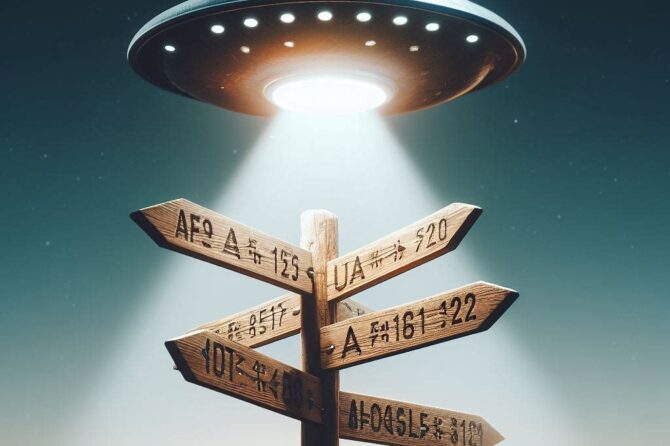 Hello and welcome to what will be an occasional feature on my blog!
Hello and welcome to what will be an occasional feature on my blog!
So – what, exactly, do I mean by ‘unknown or under appreciated’?
To put it simply – not everyone is a Kevin J. Anderson or David Weber or Eric Flint or Robert Heinlein. Some authors – I would venture to say, MOST authors – produce perfectly fine books: readable, enjoyable, well-structured, skillfully plotted and with fully-developed characters. And yet, something happens.
They never quite get the recognition they deserve. The book slides into obscurity, and the author – having watched their baby disappear from the public eye – often follows.
Well, no more!
I’ve been reading SF for basically my entire conscious life, and when I like a book, I hold onto it. So, for you lucky, lucky readers, I’m diving back into my stacks to find books which deserve another shot at the sunlight.
What?
Robert Heinlein? Awarded the Grand Master Nebula in 1975? One of the most influential SF authors of the 20th Century? How can HE possibly be unknown or under appreciated?
Easily.
Farnham’s Freehold opens as a typical novel of the day. Hugh and Grace Farnham are upper-middle-class Americans, living somewhere in or around the Rockies (the specific location is never revealed, though suggestions are made, hints are dropped that the house is located where Heinlein had HIS house). He is a successful contractor, she has allowed the success to lure her into incipient alcoholism. Their son Duke, a lawyer, and daughter Karen, a college student, are visiting for dinner, and Karen has brought her friend Barbara, a twentysomething divorcee who has gone back to school. The final member of the household is a black man, Joseph, who is employed as a houseboy, treated with respect by Hugh and contempt by Grace.
The first line is, “It’s not a hearing aid, it’s a radio, tuned to the emergency frequency.” With that, you’re immediately brought into the setting: 1960’s America, Cold War, the threat of Soviet attack. Hugh has prepared for it by building a bomb shelter under the house, using all of his contracting skills. Duke blames his mother’s drinking on Hugh’s preparations. After an argument, dinner breaks up and moves to a game of bridge, and the perspective shifts to Barbara’s POV.
Of course, Hugh is proved correct, and an attack comes; everyone makes it into his shelter, where they ride out the bombing. Duke attempts to assert his authority and is firmly quashed. As the temperature and radioactivity rise and the odds of survival drop, Barbara reaches out to a receptive Hugh. A final massive lurch knocks Hugh unconscious.
They discover, when Hugh is roused, that they are somehow in a pleasant forest glade, a stream meandering nearby. How they got there, and where they are, is subject of much speculation – another planet, a different part of our planet, an alternate dimension. Meanwhile, survival must take priority.
I’m not going to rehash the whole novel. Rather, I am going to talk a bit about the problems with the story – heretical, coming specially from a confirmed Heinlein fan as I am.
The first issue I have is the sudden shift to Barbara’s POV in the opening chapter. Most of the book is written from the third person, focusing on Hugh. But, suddenly the POV shifts to Barbara – looking at Hugh and evaluating him – and later there’s a chapter that is written as if lifted from Barbara’s journal. Now, these are both valid literary techniques. Changing POV is common, the journal less so, but I have read both elsewhere. My issue is the one-off use of both – the POV never again shifts, always focusing on Hugh, and the journal is never heard of again. Consistency, RAH!
 Second issue is, when the plot twist is revealed (not here!), NO explanation is given. Usually, Heinlein is EXCELLENT at this, always making his science plausible, logical, even if later events proved him wrong. In this novel, unique to my experience, the twist is simply asserted, a blatant use of deus ex machina, something much derided in lesser writers.
Second issue is, when the plot twist is revealed (not here!), NO explanation is given. Usually, Heinlein is EXCELLENT at this, always making his science plausible, logical, even if later events proved him wrong. In this novel, unique to my experience, the twist is simply asserted, a blatant use of deus ex machina, something much derided in lesser writers.
Finally, there is the relationship between Barbara and Hugh. Heinlein does relationships well; look at Mike and Jill in Stranger in a Strange Land, Lazarus Long and Dora in Time Enough For Love, Margrethe and Alec in Job: A Comedy of Justice. But there is NO explanation, no logic, no foundation for this relationship beyond a vague attraction and a sense of impending doom. Since this relationship is a key pivot point for the plot, if you can’t buy into it then many of Hugh’s actions later make no sense.
Issues aside, it is a quick read which presents some interesting ideas. If you can get past the issues, it is a welcome addition to your Heinlein library; but if you aren’t a fan, this is not the book to start with.
Moving forward – I welcome your comments and suggestions! If there is a book YOU want me to review, drop me a line! You can find me on Facebook (very creatively, Adam Gaffen) or you can send an email to TheKildaran@yahoo.com OR you can simply leave a comment here!
Thanks – and I’ll be back soon with another lost treasure!











My explanation. for the relationship between Barbara and Hugh goes to Heinlein's literary philosophy of the 'competent man'. Hugh is a typical, even stereotypical, example of this character type. Pragmatism rules; Grace refuses Hug he's attempts to sober up and become the woman she once was (an equally capabale type who directly contributed to Hugh's success) and Farnham is not going to waste any more of his time – especially in the face of the survival needs of the group.
Barbara, on the other hand, is the Grace that once was – a competent woman – and the type of companion Hugh needs for his future plans.
It's difficult to cite non-spoiler examples, but nevertheless: Grace's final fate directly supports this, as does her earlier 'mutiny' with her son.
In fact, Hughes actions throughout the story are a triumph of pragmatism and practicality – extending even to personal relationships – making this a central theme.
Pretty cool idea, I'm looking forward to seeing more, though I am a bit confused as to why you chose Heinlein in an "Unknown and Underappreciated" segment. I get that this book isn't one of his well-known novels. I suppose that's reason enough though. Can't wait to see what else you come up with!
Also, a side-note, there's no header or title for this article. May want to check that out. 🙂